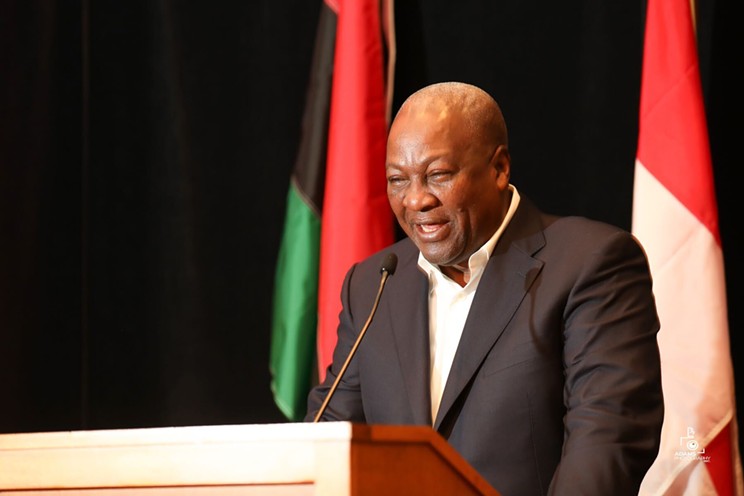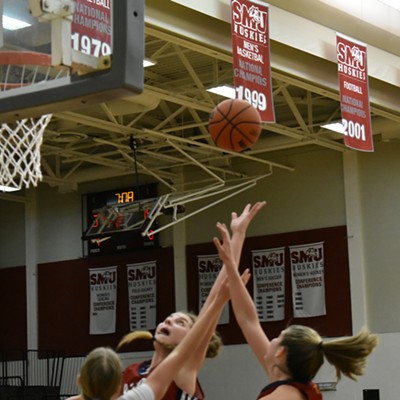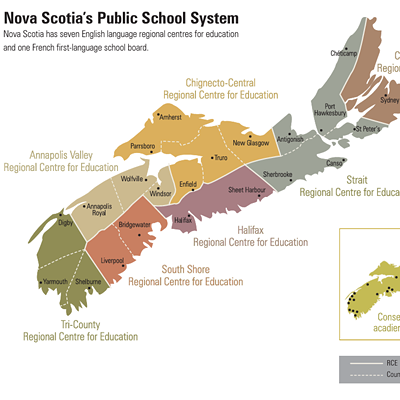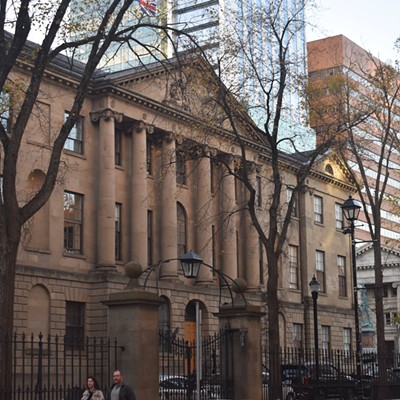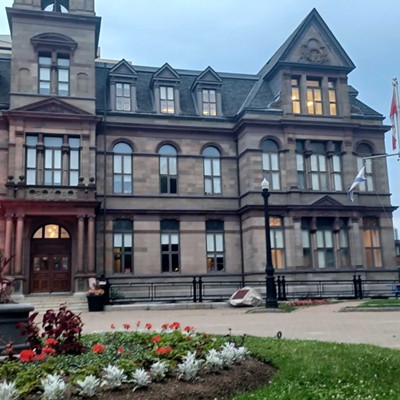Day two of the Universities Studying Slavery conference in Halifax began with breakfast in view of the harbour at the Halifax Marriott Hotel. This Thursday Oct. 19 morning, the former president of Ghana, His Excellency John D. Mahama, spoke to a full ballroom about emotionally connecting Ghana to Nova Scotia through the waters of the Atlantic Ocean, which was "a door of no return" for so so many enslaved Africans stolen from Ghana.
Get the full weekend program here
Keynote speeches
Thursday, Oct. 19
8am: H.E. John Mahama, Ghana's former president
12pm: Dr. Sylvia D. Hamilton, University of King's College
6:30pm: Sir Hilary Beckles, University of the West Indies
Friday, Oct. 20
9am: Dr. Afua Cooper, Dalhousie University
12pm: Dr. Harvey Amani Whitfield, University of Calgary
6:30pm: Dr. George Elliott Clarke, University of Toronto
Saturday, Oct. 21
9am: H.E. David Comissiong, Clement Payne Movement founder
"We will discuss and listen to talks of reparation. As we listen and receive all the information that will be presented, I'd like us to remember these three things. One: the work of atonement done by somebody else for the injustices of the past should with the work of healing. That must be done by us for the wellbeing and joy of our posterity.
"Two: we are the answer to our ancestors' prayers. They survived the unspeakable so that we would be free to soar beyond the limits that society, family, friends and even our own fears try to place on us.
"And finally, three: there's a home for you in Ghana. And we'll happily welcome you back home."
After Mahama's speedch, one of two morning breakout sessions brought three panelists together to discuss reparations and universities. Presenters were Elizabeth Beckman and Monica Kristin Blair from Johns Hopkins University in Baltimore, and PhD candidate Summer Perritt from Rice University in Houston.
Perritt presented her Masters thesis Built on their backs: Slavery at Mercer University , published in 2020, a year after a second cemetery was discovered beside the final resting place of distinguished Mercer employees in Penfield, Georgia. This forgotten and overgrown cemetery, Perritt says, "is believed to house Penfield's Black and enslaved populations and, in much the same way as Mercer University's connections to the institutions of slavery, they have been forgotten." Her work is a call on Mercer to sanction a study into its "history with the practice of human bondage."
University of King's College Inglis professor and award-winning documentarian Dr. Sylvia Hamilton spoke to the conference over lunch, pulling the audience in with captivating cadence and storytelling. "We are all here in community," began Hamilton, before sharing her report On the soil of my ancestors: A report of the Black Atlantic, which consists of five field notes and findings. "I have inserted African Nova Scotians into Paul Gilroy's conceptual framework known as The Black Atlantic. African Nova Scotians, Black Nova Scotians are central to the development of Nova Scotia and Canada." Hamilton presented her field notes in verse with accompanying archival images. She ended her talk with a viewing of her short film The Passage: Waters of the Diaspora.
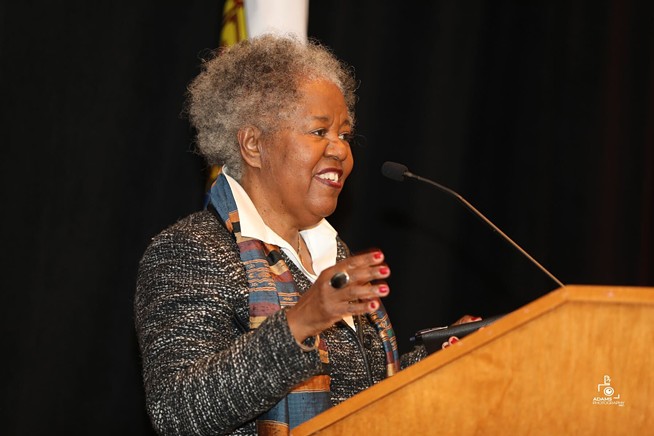
At one of two afternoon breakout sessions on universities and their communities, panelists from Columbia University, the University of Maine, the University of New Brunswick and King's College were pressed on how to bridge the gap between academic research and reconciliation and repair.
One of the four panelists was Graham Nickerson, a PhD candidate at UNB. His work explores community perspectives of the Shelburne Riots of 1784 that have been misunderstood to be exclusively the result of racial tensions.
The afternoon session brought up how to "democratize all archives"—in order to make public histories of slavery that are discovered through academic-led research and archival work. Panelists received critiques and direct questions from the audience about how to break through the institutional wall and centre Black scholars in this movement.
“It’s not just out there. It's in the universities. It's everywhere,” said Dr. Valerie Borum, visiting professor from Toronto Metropolitan University’s School of Social Work.
Borum’s comment was referring to the frustrating separation between academic research of anti-Black racism and historical ties to slavery within schools and direct action that can re-determine life opportunities for Black people now, she told The Coast.
“These are serious conversations,” said Borum, referring to those that include reparations becoming a reality both inside and outside university walls, and how that should be done. Borum says she hopes real action “in a so-called Black Paper” will come out of this four-day conference—turning research into repair at a conference demonstrating Black excellence in all talks between the hundreds in attendance. Borum will speak at a panel on the afternoon of Friday, Oct. 20 entitled: "Legacy: Dead and Living Hand."
Borum's comments were echoed in the final of Thursday's three keynotes—delivered virtually by Sir Hilary Beckles to conference guests in the Marriott's ocean view ballroom on Thursday evening. A leading academic on reparations, Beckles' talk focused on "research and repair, not research and run"—which can be the case when academics study slavery in a short-lived vacuum. Beckles is chair of the CARICOM Reparations Commission, advisor on sustainable development to former United Nations secretary-general Ban Ki-moon, president of Universities Caribbean as well as vice-chancellor of the University of the West Indies in Barbados. "Our campuses were built upon the ruins of slave plantations" of sugar and cotton, says Beckles. "So, these environments have been dripping in the blood of enslaved Africans. And we have built the physical infrastructure of our campuses on these places where enslaved Africans toiled, died and were buried."
"My academy, the University of West Indies, has now taken ownership for research, for policy, for pedagogy, for curriculum in advancing the reparatory justice movement.
"We have established an institute for reparations studies. As a university, we have put our anchor in the harbour and we are saying that the University of West Indies has always been a reparatory justice university by virtue of its origins."
Beckles says London University was given a permit to build a medical school in the Caribbean in 1948 whose purpose was "to repair the public health of the poor," because the British considered the condition of formerly enslaved Caribbeans to be the worst in the entire empire. "That is how we started, and therefore we have claimed that history and we are saying we have been committed and we will continue to commit. So we are not one to research and run, we are one to research and repair."
Look for more coverage from The Coast on the USS this week and the next.

